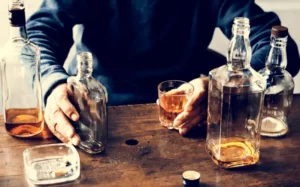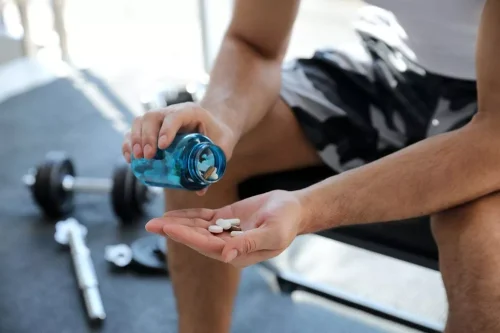
It is vital to discuss the risks and possible interactions of every medication with a doctor. Research from 2013 also supports the link between alcohol use and self-harm. The study found that teenagers with depression who drank alcohol were significantly more likely to act on suicidal feelings. Alcohol use in a person with depression may intensify the symptoms of depression and increase the risk of adverse and life-threatening outcomes. Research from 2011 found that having an alcohol use disorder significantly increased a person’s risk of having depression.
Treatment of Depression With Alcohol and Substance Dependence: A Systematic Review
- Alcohol use disorder and depression are two conditions that often occur together.
- A combination of psychosocial therapies along with pharmacotherapy has been shown to improve treatment outcomes and to be cost-effective;29 the subsequent subsections will address these treatment approaches.
- Thus, here, too, it’s important to be cognizant of the signs of PTSD in patients with AUD, and vice versa.
- Depression in an alcohol-dependent person has been reported to not only lower the resolve to resisting alcohol use, but may also lead to use of alcohol to relive the depressive symptoms [5, 6].
- The U.S. government does not endorse or favor any specific commercial product or commodity.
- For example, despite official AA literature speaking to the contrary, in some groups there may still be a bias against the use of medications.
Depression is a common and serious mood disorder, which can impact your thoughts, feelings, and behaviors. In the United States alone, an estimated 17.3 million adults have had at least one major depressive episode. The Centers for Disease Control and Prevention has found that 9 out of 10 adult binge drinkers don’t have a severe alcohol use disorder, but that doesn’t mean alcohol isn’t a problem for them.

How we reviewed this article:
All aspects of detoxification and rehabilitation including medication, dosage and side effects, and right to withdraw at any time during study were explained after which consenting individuals signed a consent. Ethical approval was obtained from the Kenyatta hospital/University of Nairobi research and ethical review board. Excluded from the study were those unavailable or unwilling to join the study for the 6 months. Those suffering from severe medical and neuropsychiatric complications (including delirium tremens, active psychosis (hallucinations, delusions), suicidal thoughts and tendencies, and severe memory difficulties) at time of screening for intake were also excluded. There are two possible explanations for the association between alcohol use disorders and major depression; firstly it may be that both disorders have common underlying genetic and environmental factors that jointly increase the risk of both disorders.
Binge drinking can cause lasting damage
Here, we briefly describe the causes and effects of co-occurrence, the mental health disorders that commonly co-occur with AUD, and the treatment implications for primary care and other healthcare professionals. alcohol and depression We start with a visual model of care that indicates when to consider a referral. There is no published data from Kenya on the association between alcohol use disorders and depression.
- Nor did a review of several recent studies by Fyer and colleagues1 and Noyes and colleagues1 reveal high rates of alcoholism in relatives of people with social phobia or other anxiety disorders (Schuckit and Hesselbrock 1994).
- People may turn to alcohol as a way to cope with mood problems, but drinking alcohol can also contribute to symptoms of depression.
- Joining a support group or a 12-step program such as Alcoholics Anonymous may help.
- Crystal Raypole has previously worked as a writer and editor for GoodTherapy.
- You can, however, take steps to lower your chances of emotional side effects when drinking.
Effects of Alcohol Use
Depending on your intoxication level, you may experience decreased inhibition, loss of judgment, confusion, and mood swings, among others. The NHS website, Every Mind Matters, has advice on how to access support and treatment for depression in England. This includes options for NHS support, links to charities, helplines and communities, and tips on self-care. If you’re still experiencing symptoms of depression after a few weeks, the NHS advises you to contact your GP surgery. A good way of keeping track of how much you’re drinking – to help spot patterns, avoid your triggers and stay within the low risk drinking guidelines – is with the MyDrinkaware app.

Interestingly, emerging data also support the use of the anticonvulsant topiramate in the treatment of AUDs,39,40 although, topiramate is not currently FDA-approved for this purpose. What are the components of the integrated model of treatment for the depressed patient with alcohol use disorder? A combination of psychosocial therapies along with pharmacotherapy has been shown to improve treatment outcomes and to be cost-effective;29 the subsequent subsections will address these treatment approaches.
The treatment priorities depend on factors such as each patient’s needs and the clinical resources available. When patients report mood symptoms, it helps to clarify the possible relationship with alcohol use by asking, for example, about mood symptoms prior to starting alcohol use and on extended periods of abstinence. In addition, ask about current and past suicidal ideation or suicide attempts, as well as the family history of mood disorders, AUD, hospitalizations https://ecosoberhouse.com/ for psychiatric disorders, or suicidality. For healthcare professionals who are not mental health or addiction specialists, the following descriptions aim to increase awareness of signs of co-occurring psychiatric disorders that may require attention and, often, referral to a specialist. Consenting participants aged 18 years and over were included in the study if they were alcohol-dependent with an AUDIT score of 15–40 (for males) and 13–40 for females.
Depression After Drinking
- Likewise, if you’re diagnosed with one of these conditions, your doctor may ask about symptoms of the other.
- These blues usually don’t linger, though, so you’ll probably feel better in a day or so.
- Second, the researchers conducted followup on 453 sons of alcoholics and control subjects who were tested in the laboratory at approximately age 20, thereby gathering data regarding the development of depressive, anxiety, and alcohol-use disorders during the subsequent decade (Schuckit and Smith 1996).
- This was filled once a week by the principal researcher and twice a week by the CBHW.
- Certain theories give rise to the expectation that alcoholics might have high rates of long-term, independent anxiety and depressive disorders (Wilson 1988).
Leave a Reply